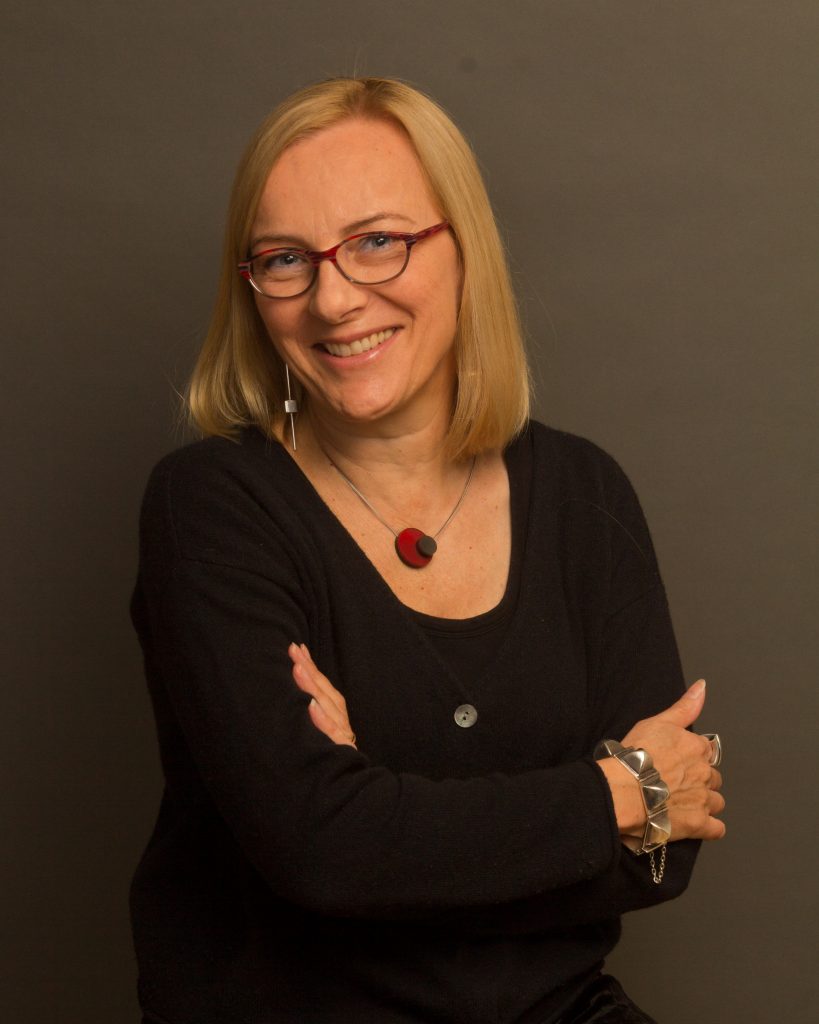
Describe your writing process: schedule, environment, inspirations, etc.
Where to begin with my horrible process? I don’t find my ideas easily, and I have many false starts. Often the story seed is buried in a different idea, one I’ve already abandoned. I guess the gardener in me needs to keep digging. Either that or I’m a masochist.
My writing radar is always switched on, and when something makes my gut tingle, I pay attention. For example, after a summer of freaking out about funky issues with my heart, a guy collapsed three rows ahead of me on a transatlantic flight. Add a family history of heart failure, and you have the opening for THE PERFECT SON (my heroine has a major heart attack—at 47—on a plane).
Once an idea sticks, I write, research, and rewrite. My favorite method of research is the one-on-one interview with people who understand the experiences I want to explore. Those interviews shape my first and second drafts, and I amble down every detour until I’ve excavated the story’s heartbeat. At some point I create a story board written to movie beats, but I don’t hit my groove until the third draft, which is when I pull in beta readers.
I’m an early morning writer, and my prime hours are 6:30—8:30 a.m. Even when I fly back to England to see my mother, I guard that early morning routine. It’s my anchor.
My alarm goes off at six, I grab coffee and a banana, and head upstairs to my desk. The first thing I do after booting up my computer is turn off the Internet. I break around 8:30 a.m. for breakfast and to check email, and then I go back to writing until noon, when I shower and get dressed. In the afternoon I switch to research, blog posts, or anything with a ticking deadline. I keep the daily business of being an author—social media, answering emails, etc. for the evening.
That’s the goal, but family life and self-doubt intrude constantly. Family always comes first, that’s never up for debate, and fortunately I can write anywhere and through just about any crisis. All I need is a laptop, a charger, and an iPod. When I’m on an airplane, a glass of wine is also involved.
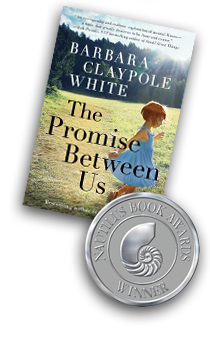
Walk me through your publishing process from final draft to final product, including who does what when, and what marketing you do.
My last three books have been with Lake Union, and the press has a specific way of handling edits. I submit the manuscript to my acquiring editor and do one round of big picture edits for her. That normally takes about a month. Then the manuscript is officially accepted, we start on the cover and back copy, and slam into a tight editing timetable. It goes back and forth between me and my developmental editor for first and second pass edits (normally he has it for two weeks, I have it for two weeks, we repeat). Then I get the copy edits and normally have ten days to turn those around, and after that we go to page proofs. In addition, I hire a freelance editor as an extra pair of eyes for copy edits.
Marketing is a gray area for me, because I hate book launches and would happily hibernate through them. About six months before my pub. date, I create a marketing plan and establish what my publisher will handle. I book local events, including a catered launch at the library, reach out to local press and local book clubs, and pay for a blog tour. That’s pretty much it, but I try to be authentic on social media, because my main marketing tool is me.
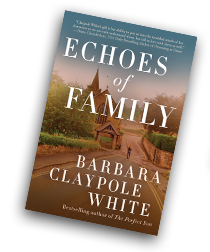
Tell me about your support system online and IRL; who are your biggest cheerleaders?
My husband and son are amazing. They are always available for brainstorming and feedback, and our son, an award-winning, published poet, is one of my beta readers. I trust his feedback implicitly, and since much of my fiction steals from family life, he has the right of veto. My BFF is also an essential part of my process. She’s a voracious reader—not a writer—and has given brutally honest feedback on every manuscript, including the one that ended up in a drawer. My sister, an artist back in England, is another cheerleader.
I’m blessed to have family who have encouraged me to be a dreamer, friends who understand the bizarre nature of the writing life, and an agent who is sympathetic to my weird levels of stress (a double dose of OCD + an aging parent in another time zone). I’ve also been incredibly fortunate with my editors at MIRA and Lake Union. A good editor is everything.
And, of course, there’s the writing community. I have terrific support from other authors online and locally, but I’ve worked hard to establish those connections. You can’t survive this industry without the camaraderie of other writers, and that has to be earned. Network like you mean it, people!
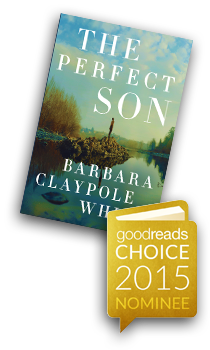
Talk about how your life influences your work and vice versa.
Writing is my therapy, my escape, and the way that I process the world. On some level it’s about crafting a better story for myself and people I love. When you live in the trenches with mental illness, you need to believe that bad days end, each day brings a fresh start, and in-between there are people who understand. That’s why hope and a sense of community are important elements in all my stories. As a mental health advocate, I pray that my characters do their bit to chip away at the stigma, shame, and stereotypes—especially with OCD, a chronic illness that has no cure and demands constant management.
My son has battled OCD for most of his life. When he was little, I was terrified that he would never grow up to be loved for the incredible person he is, but would always be judged by his anxiety. Which is crazy, because my husband of thirty years also has OCD. (For the record, our son has been in a serious relationship for the last four years.)
But that maternal fear gave birth to my first hero, James Nealy. He appeared in my head when I was several drafts into the manuscript that would become my debut, THE UNFINISHED GARDEN, and refused to leave. James is brilliant, sexy, wealthy, and locked in a private war with obsessive-compulsive-disorder. He’s a romantic hero who struggles with an invisible disability, but exhibits incredible compassion, empathy, and courage.
Those are the qualities that I see in my son, even as he negotiates the relentless horrors of intrusive, unwanted, repetitive, obsessive thoughts. He is my muse, my inspiration, and the reason I’m passionate about creating characters who are successful in life and love despite messed-up brain chemistry.
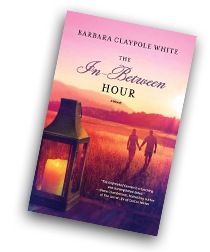
What do you love most about your creativity?
Not sure I can answer that one, but I love hanging out in my garret with my imaginary friends. I talk to them all the time. As I said, they help me process my life. They keep me sane, and they keep me laughing.
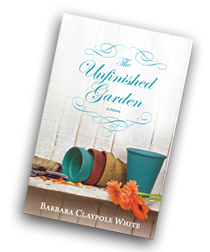
AUTHOR BIO
Bestselling author Barbara Claypole White writes hopeful family drama with a healthy dose of mental illness. Born in England, she works and gardens in the forests of North Carolina and is an OCD advocate for the A2A Alliance, a nonprofit that promotes advocacy over adversity. Her novels include: The Unfinished Garden, which won the Golden Quill for Best First Book; The In-Between Hour, a SIBA Okra Pick; The Perfect Son, a Goodreads Choice Awards Semifinalist; Echoes of Family, a WFWA Star Award Finalist; and The Promise Between Us, a 2018 Nautilus Award Winner. She is currently working hard on novel six, The Gin Club, and is excited about the July 2019 release of The Unfinished Garden audiobook.
To connect with her, please visit
https://www.facebook.com/BarbaraClaypoleWhite
Goodreads
https://www.goodreads.com/author/show/5778132.Barbara_Claypole_White
https://twitter.com/bclaypolewhite.
https://www.instagram.com/bclaypolewhite/?hl=en
BookBub
https://www.bookbub.com/profile/barbara-claypole-white
I encourage sharing and commenting on social media (allowing comments on my website attracts overwhelming spam). Please tag me in shares and comments.